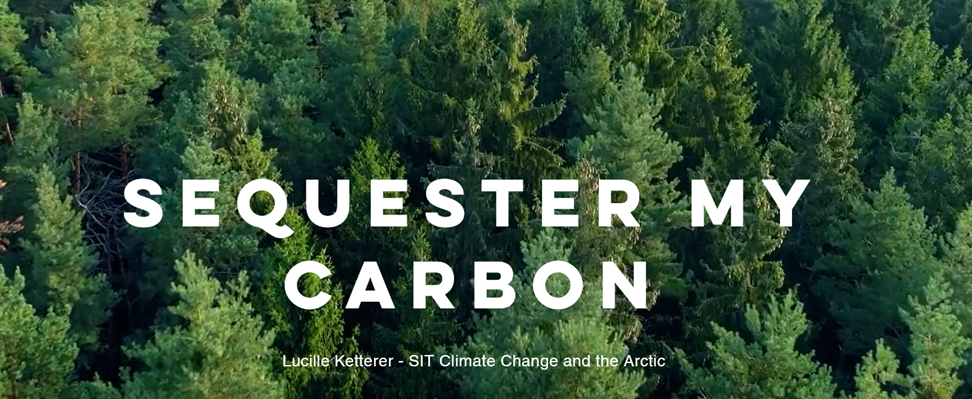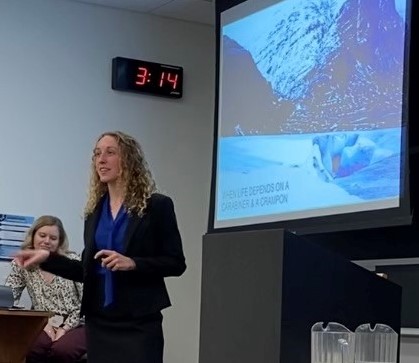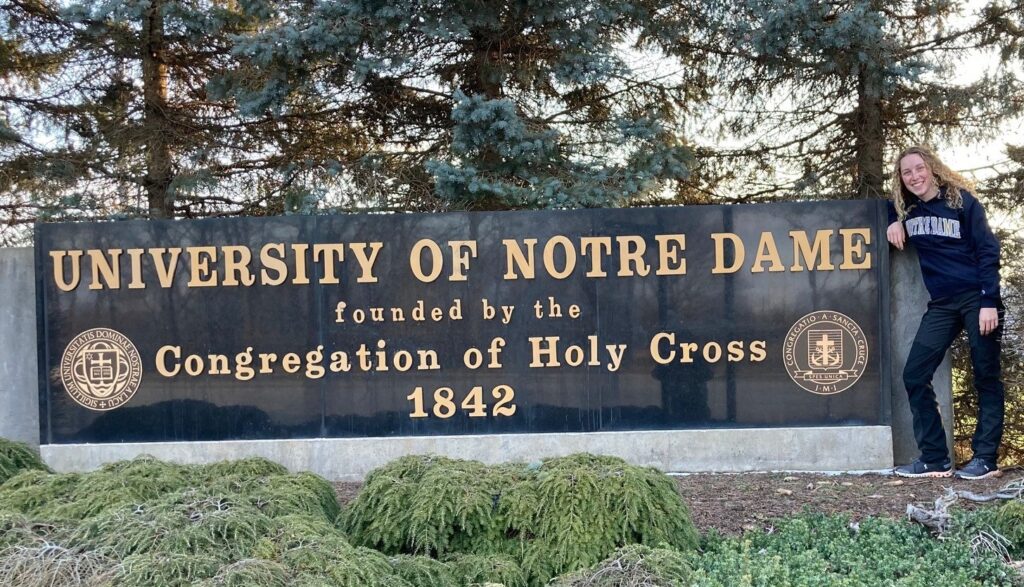Six tips for how and why to find funding for your research presentation
October 17th, 2023 | Research, SIT Study Abroad

As a Bucknell University engineering student, Lucille Ketterer studied abroad with SIT in spring 2022 on Iceland: Climate Change and the Arctic, where she researched carbon sequestration in one of the greenest countries in the world. In February, thanks to funding from her university, she presented her research, Sequester My Carbon, at the Notre Dame Human Development Conference.
- Click HERE to find out more about the 2024 Human Development Conference
“We did our research for a reason and sharing it is important,” Ketterer said. She saw the conference as an opportunity to make more people aware of the issues she had researched and spread information about the importance of carbon sequestration. What's more, she noted, the presentation and speaking skills needed to participate in a conference are considered assets as students move into their careers.

After graduating in May with a degree in environmental engineering, Ketterer is working for an engineering firm in a rotational position where she moves around the U.S. over the course of a year.
We reached her in Utah, where she is assessing ventilation systems, to talk about how she found support for her Notre Dame presentation. She gave us these pointers on how to find funding and why it’s important:
Presentations build your confidence, which helps in your job search.
Conferences are a great way to build confidence in your presentation and speaking skills, which will help you as you move into a career, Ketterer said. “I always mentioned my conference presentation in job interviews and employers responded positively,” she said. Meeting other participants and moderators at the conference who had more experience and expertise was a growth and networking opportunity. “I would say the conference was a valuable experience, especially in building career skills. It shows employers that you are willing to go above and beyond.”
Ask in person.
Ketterer planned to first approach the Department of Civil and Environmental Engineering for funding. If that didn’t work, she intended to go to the next level, the College of Engineering, but that wasn’t necessary. Her department provided full funding for the conference, including travel, lodging, and meal expenses.
Ketterer recommends making the initial request in person. She set up a meeting with the chair of her department, with whom she had taken a class, which gave her an advantage because they knew each other. “But even if you don’t know the chair, you can ask one of your current professors to introduce you,” she suggested.
Network.
“I talked with other professors in the department in advance of the meeting with the chair and told them about my research and the conference. They said it sounded like a great idea, so I made sure to mention to the chair that I had the support of these other department faculty.
Be prepared.
Ketterer went to her meeting with a folder containing information about the Notre Dame Human Development conference, her proposal, and her research, and what proved to be most important, an Excel spreadsheet with her estimated costs for attending the conference including flights, hotel, and food.
Budget!
Procedures differ at each institution. At Bucknell, after the chair approved her funding, the department was able to purchase her flights and hotels directly, so she had no out-of-pocket expenses for those costs. The department procedures also allowed her to request a travel advance, but Ketterer opted to use her own funding for meals and keep the receipts for reimbursement after the conference.
Offer to follow up.
In her meeting with the chair, Ketterer offered to present, speak, or otherwise help to publicize her research and her experience, either within the department or externally, when she returned. As it turns out, she was asked to write a short summary of her conference experience.

